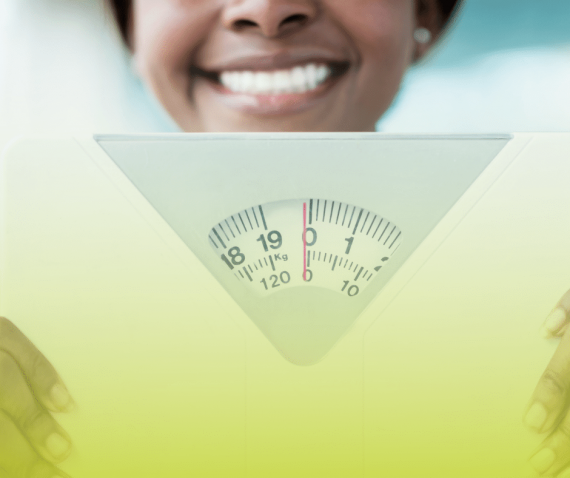ARE YOU A HEALTHY WEIGHT?
Food provides the body with energy (or calories) which our bodies need to work correctly. We take in energy as food and use it through physical activity. If the food we eat provides more energy (calories) than we use up, then we will gain weight.
It's not healthy to be either underweight or overweight. If you're underweight because you're not eating enough, you may not be getting all the nutrients your body needs to function. If you're overweight, you are more likely to suffer from health problems such as heart disease, high blood pressure and diabetes.
If you're considering starting a weight-reduction plan check that you really do need to lose weight by using the correct weight for your height chart. If you are at the lower end of the ‘OK’ weight range, it's essential for you to maintain your weight. Alternatively, speak to your fitness instructor who can discuss your goals and help you put a plan in place to ensure you get there healthily and sustainably.
If you are overweight, you need to do more physical activities. For example, 40-45 minutes of cardiovascular exercise works your heart and lungs at least three times a week; plus take in less energy from food. Group Cycle is a fantastic way to burn those extra calories, as well as blasting those calories, strengthens and tones the lower body and core while also improving overall fitness.
To help you lose weight you should decrease calorie intake by cutting down on the amount of fat sugar and salt that you eat. Foods to avoid are refined sugars, i.e. sweets, sweetened drinks and alcohol. Foods high in salt and saturated fats such as biscuits, crisp’s chocolate bars, savoury pies and pastries.
Cut down on fatty meat products too. Red meats are high in saturated fats .i.e. beef burgers, sausages, mincemeat and even some dairy products. Avoid hard cheeses, cream, full-fat milk (evaporated or condensed).
For further advice and support speak to your fitness instructor, we're here to help!



